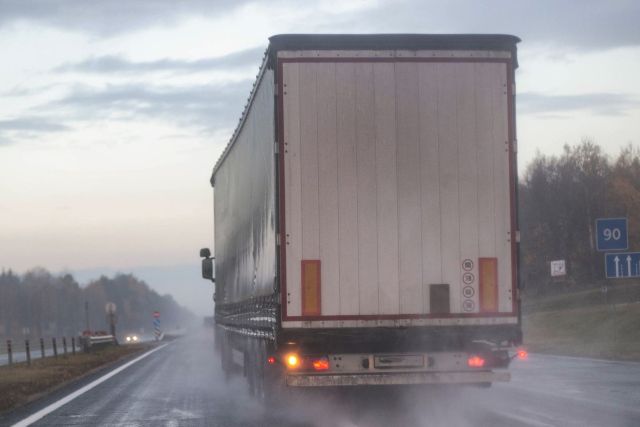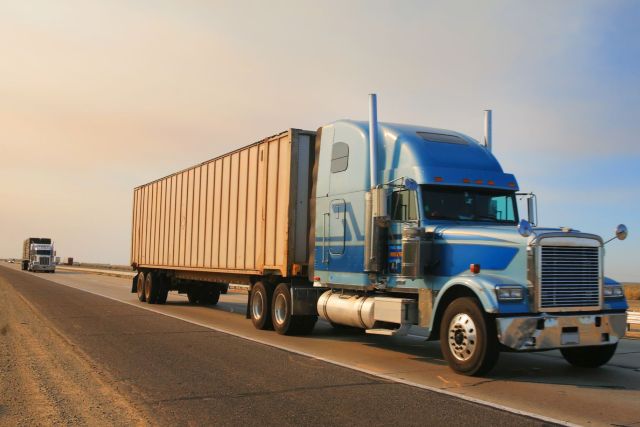








Navigating the Legal Complexities of Truck Accidents and Trucking Regulations
The trucks used in the U.S. trucking industry are characteristically heavy and large to allow them to accommodate their cargo. However, due to their weight and large size, accidents involving these vehicles are often catastrophic, causing serious injuries and death.
Many such truck accidents can be prevented and would not occur if the trucks were in good condition and those who drive them exercise caution while on the road.
To minimize the risks, the federal and state governments in the U.S. have made certain trucking rules and regulations to ensure that the roads are safe for all. These regulations bind truck drivers and trucking companies in different capacities. Compliance is mandatory; anyone who disobeys the rules could face serious legal sanctions such as license suspension.
As a commercial truck driver, non-compliance with the rules could also mean that you’ll be held responsible if an accident occurs due to your failure. In that case, you may be forced to compensate those who sustained injuries due to the accident. If you sustained any personal injury, your non-compliance could also affect your ability to claim damages or compensation from another driver or employer.
To avoid such issues, it is important that you’re aware of your obligations under the relevant trucking regulations and do your best to uphold them. Below, we’ve highlighted some important federal and state regulations that could affect you in a truck accident case, so you can start now to ensure you remain on the right side of the law.
The Role of Trucking Regulations in Accident Cases
Most of the time, victims of vehicle accidents can claim compensation for personal injury, property damage, or any other loss from the party at fault (depending on the law that applies where the accident occurred). They can enforce this right by either filing an insurance claim against the at-fault driver’s insurance company or initiating a lawsuit.
As a truck driver, you have the same right to seek monetary compensation after a truck accident. But if your actions contributed to the accident or you’re found to be at fault, your ability to claim compensation is jeopardized. If you cannot get (sufficient)compensation or monetary damages, you will need to pay your medical bills and other losses on your own. You could incur additional expenses from compensating other victims if found to be at fault.
In determining who is at fault, the court or insurance company will evaluate the circumstances in which the accident occurred and review the available evidence, including accident reports, eyewitness accounts, and the vehicle’s state.
If you’re found to have broken any driving law during the investigation, e.g., you ran a red light or otherwise breached any trucking regulation while driving, the court or insurance company would likely conclude that you were responsible at least in part for the accident. It would take a lot of effort to extricate yourself from that situation, and you’ll need to provide evidence to the contrary.
An attorney may be able to help in such circumstances. But before such situations occur, you can help yourself by taking note of the regulations discussed in the subsequent sections.
Federal Trucking Regulations
The Federal Department of Transport, through its agency, the Federal Motor Carrier Safety Administration (FMCSA), is the primary regulatory body and enforcer of Federal trucking laws for commercial motor vehicles engaged in interstate trucking in the U.S.
The FMCSA has several regulations that establish standards for trucking operations, aiming to prevent accidents and mitigate safety risks. Some of those regulations are as follows;
Hours of Service Rules
The FMCSA’s hours of service rules set the maximum driving hours for truckers. The aim is to combat driver fatigue, which significantly contributes to truck accidents.
Even though there are permissible variations and exceptions in certain circumstances, truck drivers are generally not allowed to drive more than;
- 11 hours after ten consecutive hours off duty( for cargo trucks)
- Ten hours after eight consecutive hours off duty (for passenger-carrying trucks).
- Or more than 60/70 hours in 7 to 8 consecutive days.
Drivers must also take a 30-minute break after driving for eight straight hours.
The FMCSA requires truck drivers to keep log books documenting their driving hours to monitor compliance. In car accident cases, especially where driver error is suspected, the log book could serve as evidence to determine whether the truck driver had complied with these rules.
Truck Maintenance and Inspection Rules
The FMCSA requires truck drivers and trucking companies to inspect their vehicles and ensure that every truck on the road is in good condition.
Truck drivers are specifically required to conduct their inspections before each trip and document their findings. If any fault is detected in any part of the vehicle, including crucial components like brakes, tires, or steering, the driver cannot drive such a vehicle until it is fixed.
You must conduct your truck inspections diligently and when due. If an accident occurs due to a defect or fault that could have been identified during your pre-trip inspection, that could be a basis to ascribe responsibility for the accident to you.
It is illegal for an employer to force or coerce you to drive in circumstances where you’ll be breaching any of those federal regulations. If this has happened in your case, please speak to a lawyer immediately to understand your legal options.
Common Trucking Regulation Violations Leading to Accidents
Hours of Service Violations
Trucking regulation violations significantly increase the risk of catastrophic accidents. Hours of Service (HOS) violations top the list, with drivers exceeding legal driving limits to meet tight deadlines. The FMCSA reports that driver fatigue contributes to approximately 13% of commercial vehicle accidents.
Maintenance Failures
Improper vehicle maintenance represents another prevalent violation. Brake failures, worn tires, and defective lighting systems often result from neglected inspection protocols. Nearly 30% of truck accidents involve some form of mechanical failure that proper maintenance could have prevented.
Weight and Loading Issues
Weight limit violations force trucks to operate beyond design capabilities, compromising braking distance and stability. Overloaded trucks require up to 40% more stopping distance than properly loaded vehicles.
Documentation and Qualification Concerns
Documentation falsification, particularly in logbooks, enables drivers to conceal HOS violations. Electronic Logging Devices (ELDs) have reduced this practice, but paper logbook tampering still occurs in some operations.
Driver qualification violations, including inadequate training or licensing, put inexperienced operators behind the wheel of commercial vehicles. Driving under the influence remains a persistent issue, with substance abuse contributing to approximately 3% of commercial vehicle crashes.
Trucking companies that pressure drivers to violate regulations create dangerous conditions. Understanding these common violations can help drivers recognize and avoid situations that might compromise safety and lead to legal liability.
Evidence in Truck Accident Investigations
Electronic Data and Vehicle Information
Truck accident investigations require comprehensive evidence collection to establish liability and causation. Electronic Control Modules (ECMs), commonly called “black boxes,” provide crucial data including speed, braking patterns, and engine performance before impact. This objective digital evidence often proves decisive in determining fault.
Driver Records and Compliance Documentation
Logbooks and Hours of Service (HOS) records reveal driver compliance with federal regulations. Investigators scrutinize these documents to identify potential fatigue factors or falsification attempts. ELD data, now mandatory for most carriers, offers tamper-resistant verification of driving hours.
Maintenance and Inspection History
Maintenance records document inspection history and repair timelines. Investigators examine these records to identify neglected safety issues or pattern violations that might have contributed to mechanical failures. Documentation gaps often indicate negligence in equipment upkeep.
Personnel Files and Qualifications
Driver qualification files contain employment history, training certifications, and medical examinations. These records help establish whether the driver met minimum qualifications for operating commercial vehicles safely.
Physical Evidence and Accident Reconstruction
Physical evidence at accident scenes, including skid marks, vehicle damage patterns, and road conditions, provides investigators with critical insights. Professional accident reconstructionists analyze this evidence to determine collision dynamics and contributing factors.
Witness Accounts and Video Evidence
Witness testimony and dashcam footage offer additional perspectives that can clarify visibility conditions and pre-accident driver behavior. Cell phone records may reveal potential distracted driving behaviors immediately preceding crashes.
Expert witnesses, including engineers and safety compliance specialists, interpret complex evidence for courts and insurance companies. Their analysis often proves essential in establishing regulation violations and their connection to accident causation.
State Trucking Regulations
Individual states have trucking regulations for truckers that operate within their borders. However, these rules only apply to trucks engaged in intrastate commerce within that specific state.
If you engage in intrastate trucking activities, it is important that you are aware of the trucking laws and regulations in your state so you can comply with them satisfactorily. That way, you can be sure that you have nothing to fear in the event of a truck accident in that state.
An experienced attorney can help you understand the specific trucking regulations in the state where you operate and the steps you’re required to take in compliance.
Contact Hurt Trucker Attorneys
As a truck driver, the risk of being involved in a truck accident and sustaining injuries is high. So, you want to make sure that your ability to claim monetary compensation after such an unfortunate event is secure.
Understanding the applicable trucking regulations is one of the Basics of Interstate Motor Carriers. But beyond that, you must do all you can to comply with the regulations as a preventive measure to minimize your truck accident risk and to protect yourself from liability if an accident does occur.
At Hurt Trucker Attorneys, we can provide professional and personalized guidance to help you appreciate your obligations under the applicable trucking regulations.
As lawyers for injured truckers, we are committed to helping truck drivers who have been injured due to accidents in the course of their jobs build a robust case and obtain the compensation they deserve. If you’ve been injured in an accident, we can represent you as you navigate the complex process of obtaining a settlement for your losses and injuries.
Even if you were not completely compliant with the rules at the time of your accident, all hope is not lost. With our experience, we may be able to help establish that your non-compliance was not the cause of the accident to get you the compensation you deserve.
Contact Hurt Trucker Attorneys if you have any issues or complaints about trucking laws or regulations or need help with your compensation claim after an accident. Let’s help you fight for your rights and protect your interests.





